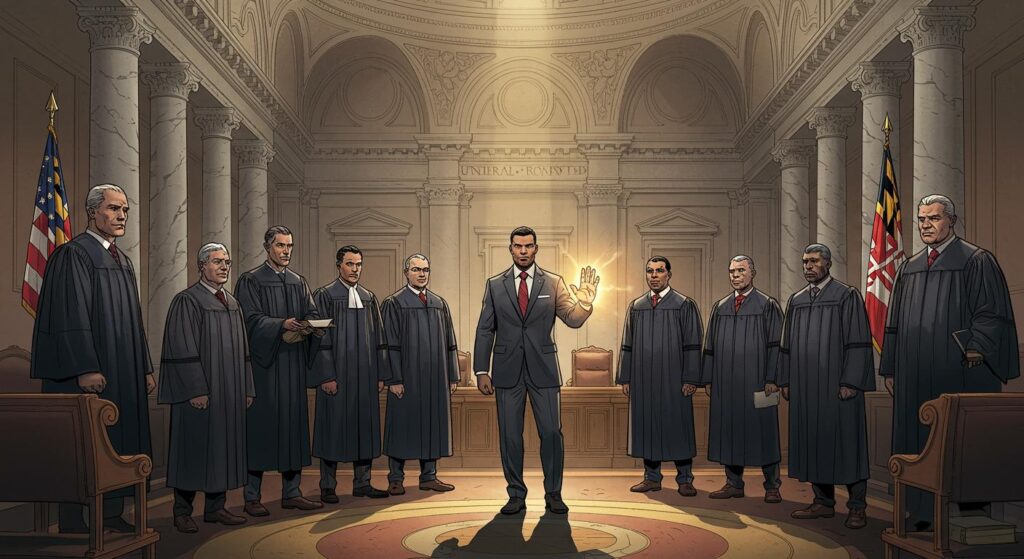Fitness influencer stories reliably toast the edges of strange, but the arrest of Brian Johnson—better known as the “Liver King”—in Austin this week might be a new entry in internet performance art gone awry. For readers just tuning in: Johnson built an entire social media empire around raw organ meat, tactical gear, and the credible-sounding claim that a six-pack can be yours if only you chew enough beef liver. Yet as recently described in The Economic Times, his latest saga veered well past diet advice and into full-blown theatrics—with the law, no less, becoming an unexpected supporting character.
Viral Antics, Legal Consequences
Johnson was apprehended Tuesday in Austin on a misdemeanor charge of making a terroristic threat after a string of social media videos aimed at podcast host and comedian Joe Rogan. Details highlighted by The Economic Times indicate Johnson, 47, appeared in the videos dressed in a tactical vest and hoodie, pacing around his living room while meditation music played. At one point, footage reviewed by the outlet shows Johnson toying with a utility knife—until his cameraman intervened—and later pleading for “12 more minutes to s–t” as two individuals came to escort him out. The moments play out with the peculiar air of performance, the sort of scene that, in another timeline, would be left on the cutting room floor of a reality show.
In another detail documented by the report, Johnson addressed a black ammo box marked with “The Joe Rogan Experience” logo, insisting that if arrested, the box should be delivered to Rogan’s Austin comedy club, “The Mothership.” The chaos peaked with a group prayer and a family hug as sirens wailed outside—an ensemble finale befitting an influencer who often blurs the line between act and actuality.
The core of the drama, as the outlet notes, was Johnson’s escalating series of video challenges aimed at Rogan: “Man to man, I’m picking a fight with you,” Johnson declared in videos cited in the report, at one point claiming he was “willing to die” in the ring. This came against a backdrop of Johnson referencing his own possible incarceration and inviting Rogan to answer the call. One might ask: how much of this was theatre, and how much was sincere?
Unsurprisingly, Rogan has yet to comment, and the Austin Police Department hasn’t issued an official statement regarding the arrest. The connection between the threat charge and Rogan remains, as the report puts it, unclear—though the content of Johnson’s videos brewed a perfect storm for controversy.
From Ancestral Workouts to Internet Outbursts
Layered beneath this spectacle is Johnson’s longer arc—a rise from champion of raw liver and so-called ancestral living to central figure in a very modern meltdown. In “Untold: The Liver King,” a Netflix documentary also referenced in The Economic Times report, Johnson’s journey from obscurity to meme-worthy notoriety is dissected, especially his claims that extraordinary muscles were achieved solely through ancestral eating and tire flipping.
Yet as noted in the same reporting, a twist arrived when leaked emails revealed Johnson was shelling out over $11,000 a month for steroids. Following dogged criticism (including, notably, from Rogan), Johnson ultimately admitted to heavy steroid use, walking back months of denials. It’s a classically internet arc: build an audience on myth, then tangle with the fallout as reality comes due. Does every influencer risk being consumed by their own performance, or was this a uniquely Liver King blend of bravado and overstep?
Reflections on the Absurd Frontier
Earlier in the Economic Times article, it’s mentioned that Johnson’s family huddled for a group prayer while lights flashed outside—the kind of image that suggests we’re witnessing something between a publicity stunt and a nervous breakdown. With the official word from authorities still pending, and Rogan giving nothing away, the ambiguity lingers.
Absurdity aside, the Liver King saga illustrates the way social media can amplify not just voices, but spectacles—sometimes until reality itself gets blurry. Tactical vests in living rooms, mysterious ammo boxes destined for comedy clubs, and public declarations of ring combat: one could almost admire the commitment to the bit, if not for the flashing lights and actual arrest.
Is this an outlier, or just another sign that influencer culture rewards ever-bigger swings—and, at times, the messiest of misses? Somewhere, perhaps, someone is setting up their own camera, preparing the next self-styled showdown between myth and consequence.







